Circular Procurement Training for Plastic Waste Reduction
The Circular Innovation Council partnered with the European Union’s (EU) project on Reducing Plastic Waste in Canada, and together with Global Sustainable Resources, Ltd. collaborated on the development of a Circular Procurement training course. The goal of the training course is to inform and inspire change toward greening procurement for buyers in Canada. The project was part of the EU’s Circular Plastics in the Americas Program. The two-year project aimed to support the transition towards more sustainable production and consumption, enhance peer-to-peer exchanges and boost ongoing processes to create opportunities for a circular plastics economy.
The course was developed to offer knowledge exchange with Canadian buyers and suppliers to learn about advancements in circularity and how it is being applied to procurement processes in European jurisdictions, the benefits of greening procurement, the state of the circular plastics economy in Canada, as well as guidance on how to integrate circularity principles into the procurement process. Specific course elements addressed challenges in the procurement process, how to get started integrating circularity into procurement, how to develop key performance indicators, and how to integrate circular principles into the tendering process. The course was developed as a series of 3 modules as follows:
Module 1: Introduction to the Circular Economy, Procurement, and Plastics
Module 2: Specifying Circular Outcomes – the Procurement Toolbox
Train the Trainer Session: Using Procurement to Reduce Plastic Waste – Overview of Resource Package and How to Use the Resources Available
The Circular Procurement Course for Plastic Waste Reduction was designed and implemented as a virtual course and is now available for download by Canadian procurement specialists looking to deepen their practices and acquire new tools and solutions to drive plastic waste reduction objectives. This course has been uniquely designed as a train-the-trainer program. Canadian procurement and sustainability practitioners are invited to use the materials to further disseminate learnings throughout their organization to advance reductions in plastic waste.
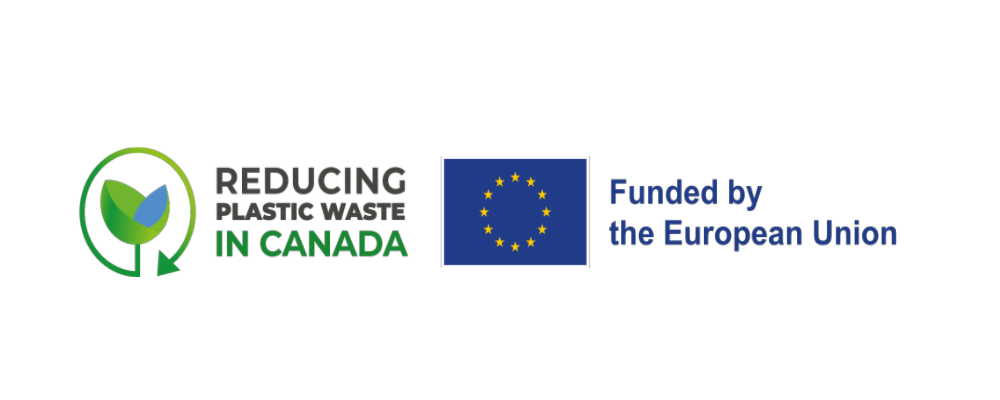
Train-the-Trainer Resources
The Circular Procurement Course for Plastic Waste Reduction is designed as a set of two sessions which aim to educate and improve awareness of the link between reducing plastic waste in procurement activity and provide information and resources to establish goals and build action plans on how to achieve circular procurement. The training materials, tools and resources have been designed as guide and can be adjusted to best suit your organization.
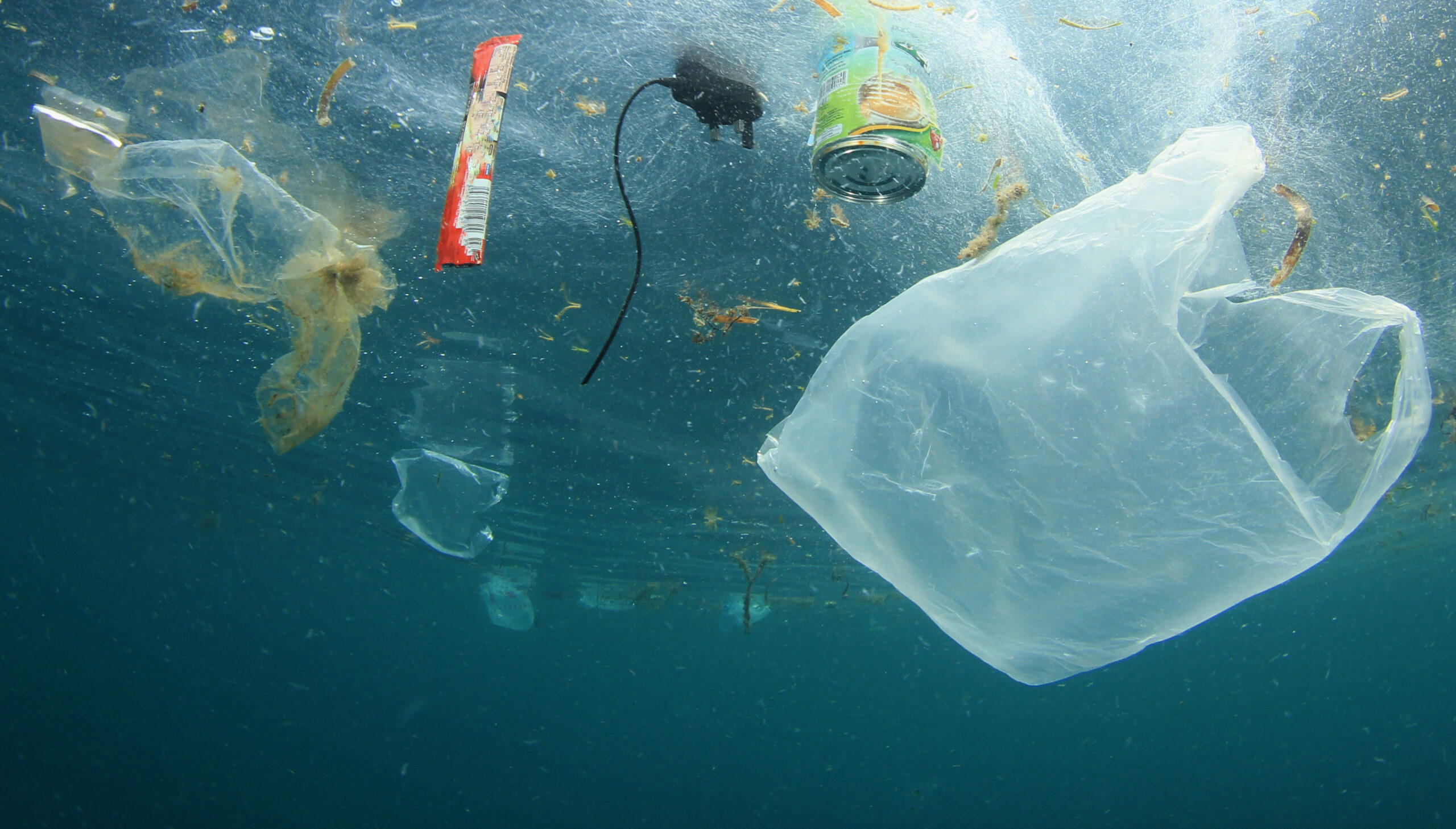
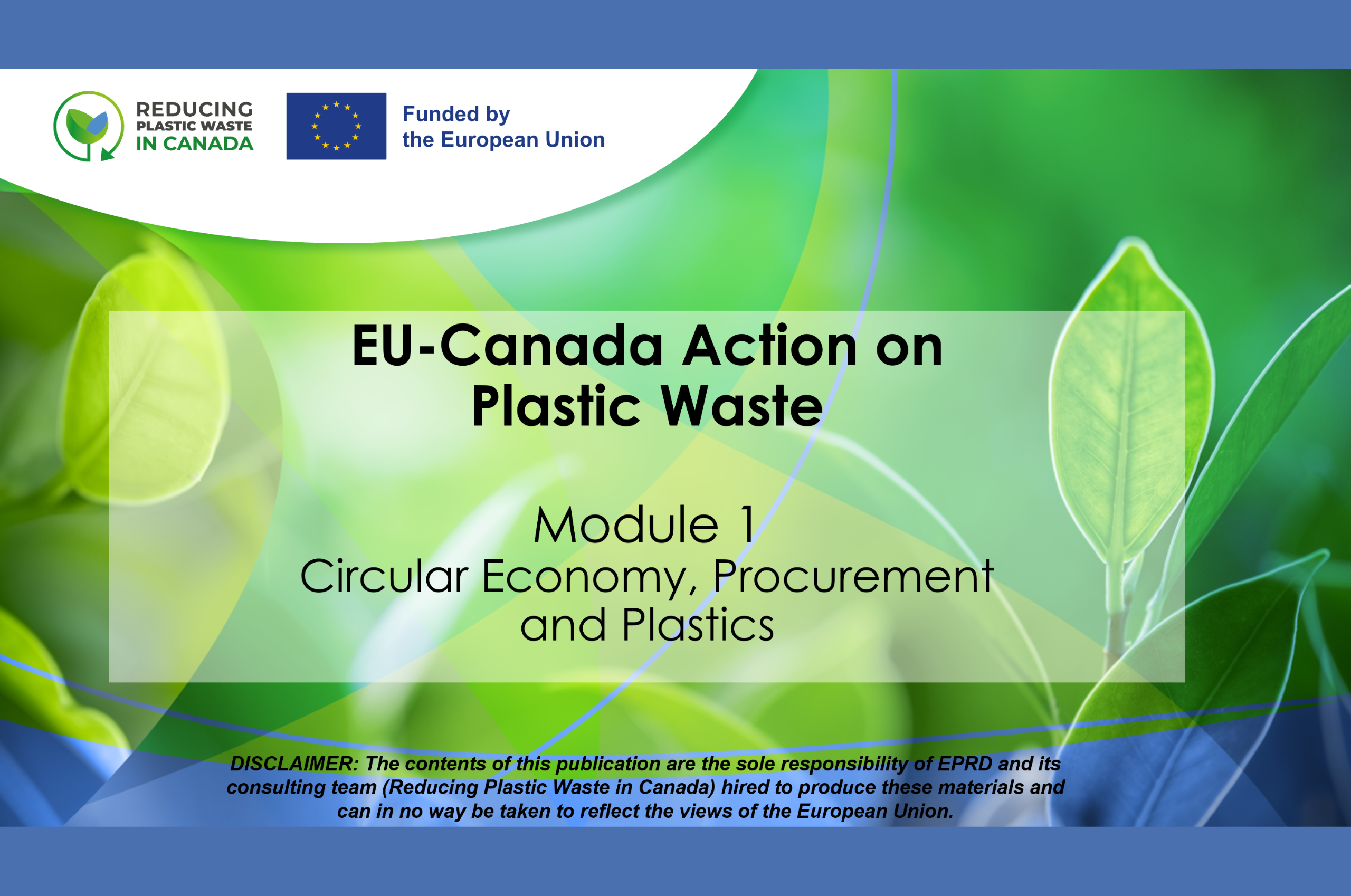
EU-Canada Plastics Project: Module 1 Presentation
The learning objectives for Session 1 is to establish a baseline of understanding of the circular economy, the issue of plastic waste in the environment and the role of procurement to address this issue. Participants will learn how a circular procurement approach to plastics waste reduction can deliver a range of benefits and supports government objectives (be they national, provincial, or municipal). It is designed to provide professionals who influence policy and budgets, develop business case options, and conduct market engagement and development to understand how plastics waste can be impacted by procurement policy.
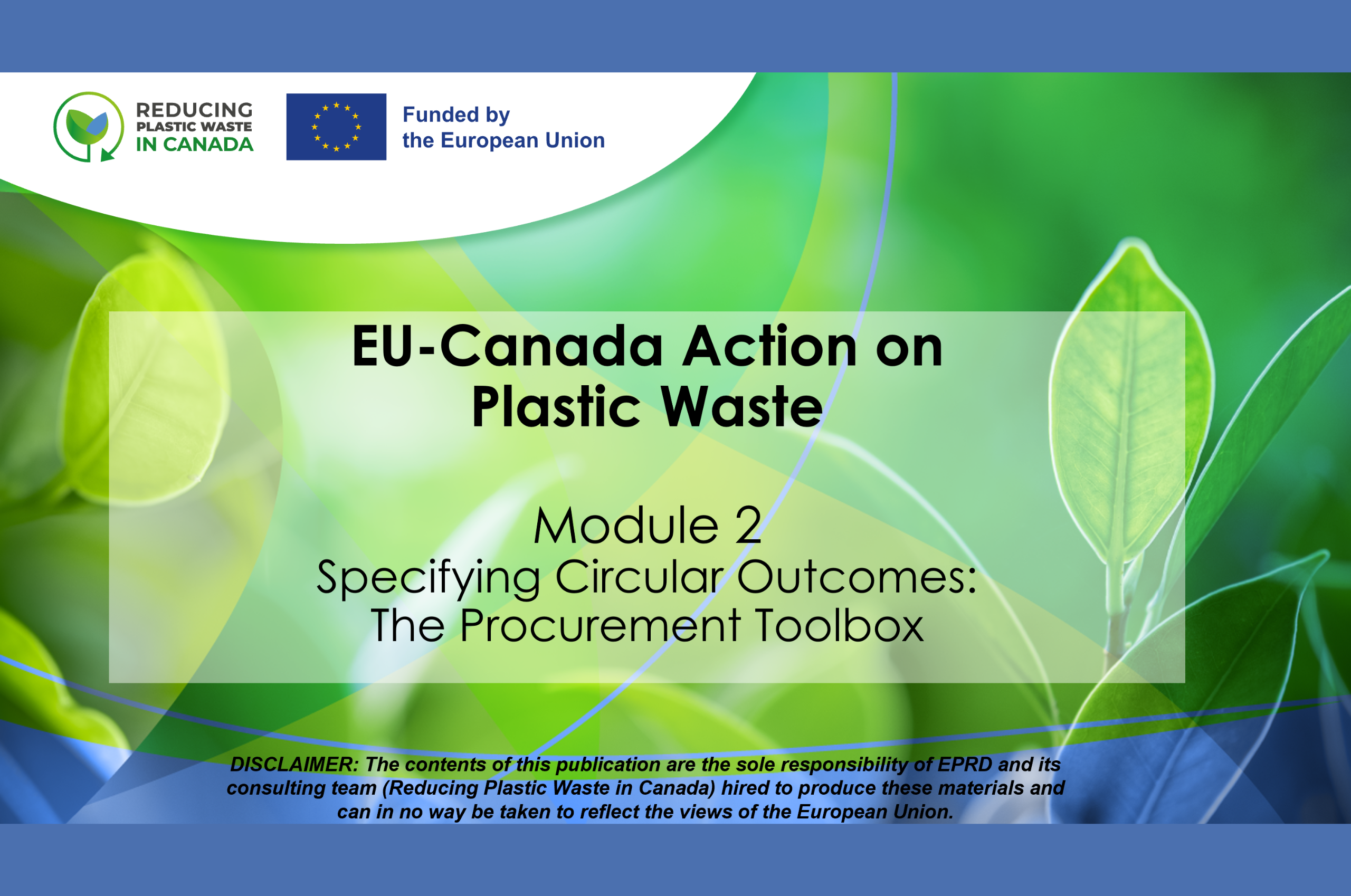
EU-Canada Plastics Project: Module 2 Presentation
The learning objectives for Session 2 are to enhance understanding of implementation tools for circular procurement. Session 2 provides more practical training tools including criteria for tenders, details that help with achieving circular procurement goals such as sourcing, product use, circular services, and end of life considerations. Procurement practitioners will gain several tools to use in the procurement toolbox, to help their organizations achieve circularity.
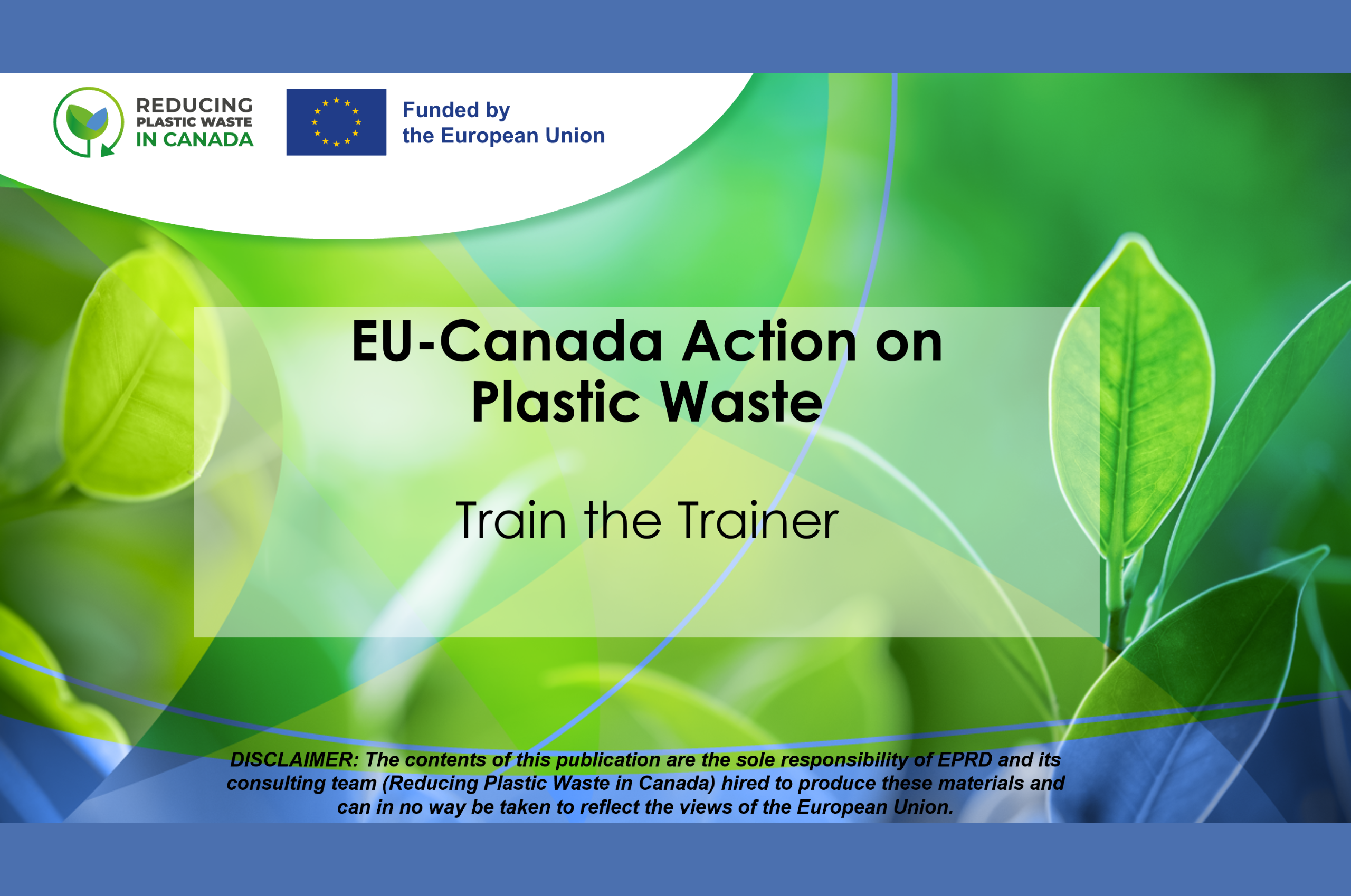
EU-Canada Plastics Project: Train-the-Trainer Presentation
The train-the-trainer presentation is a consolidation of the two learning modules. Slide notes are included to help guide content delivery and highlight opportunities to engage directly with participants. Time limits and additional notes are also included to guide break out groups and facilitate discussions.
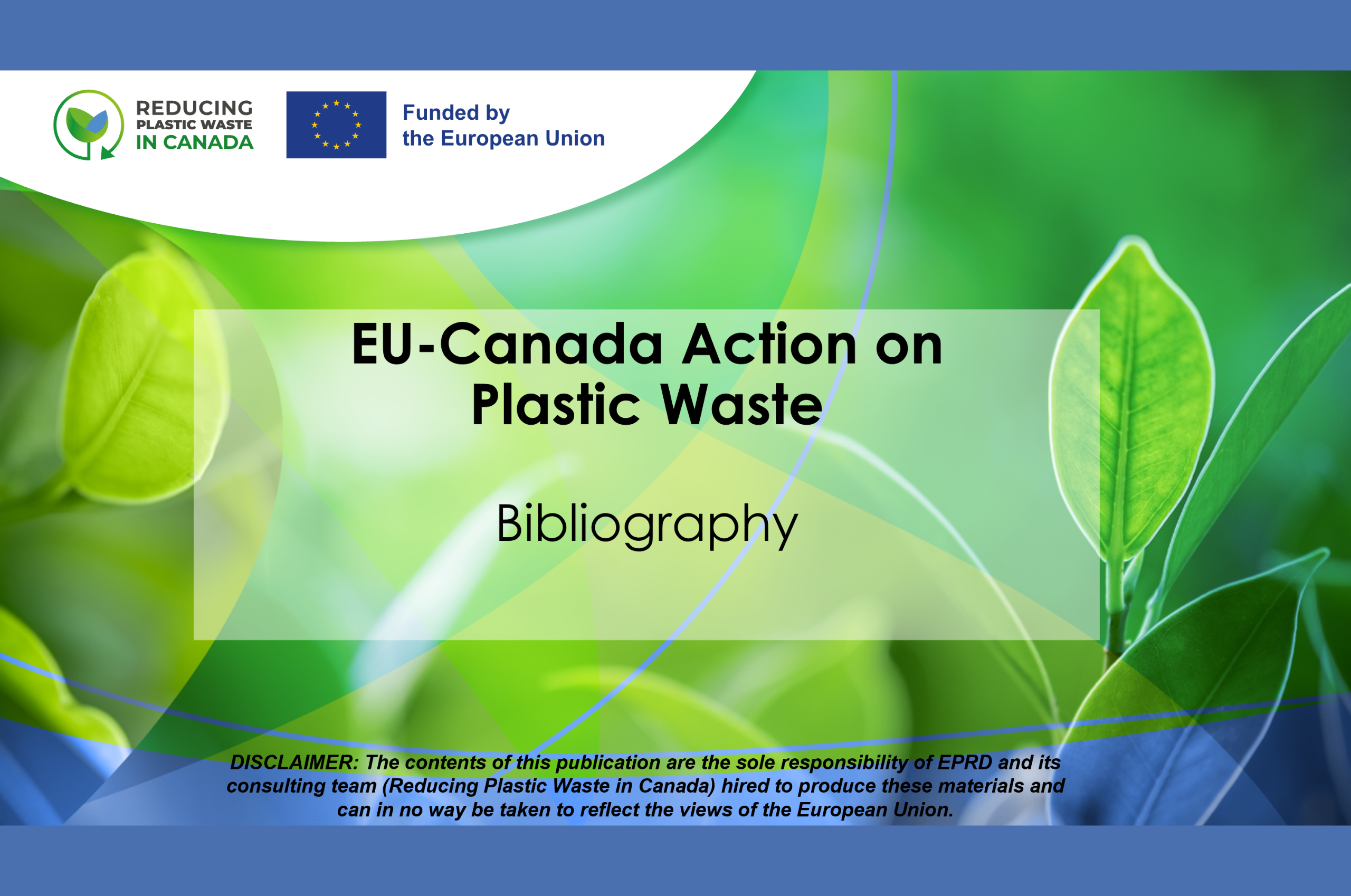
EU-Canada Plastics Project: Bibliography
The bibliography contains a variety of informational sources to support and supplement the training modules. The sources have been organized by theme and learning objective.

EU-Canada Plastics Project: Procurement Criteria
This document provides examples of procurement wording/clauses that include a focus on the reduction of plastics waste and is comprised of both technical specifications as well as outcome-based specifications.
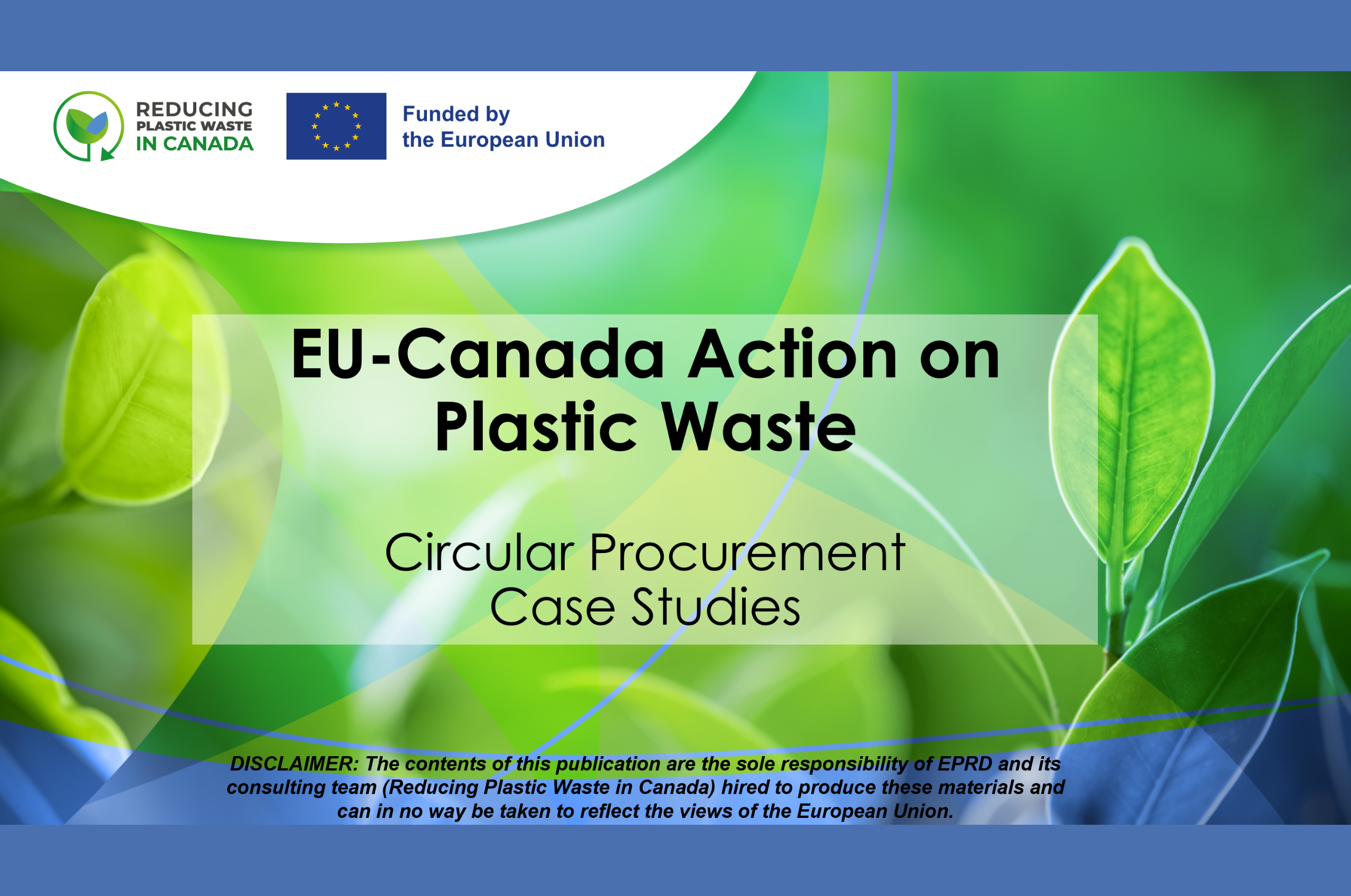
EU-Canada Plastics Project: Case Study Suite
This document contains a collection of case studies which have been included in the two training modules. The examples are grouped by primary theme, although many of the case studies address multiple themes across the procurement cycle and lifecycle of plastics.
